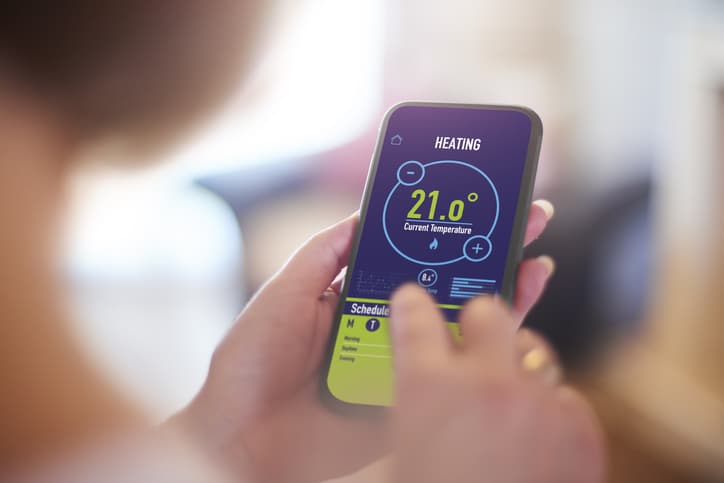New Boiler Edinburgh – Your Questions Answered

In need of a new boiler in Edinburgh?
Looking for a New Boiler in Edinburgh?
If you are looking for a new boiler in Edinburgh this article covers the questions we and our engineers are most frequently asked.
To arrange a free quote for a new boiler in Edinburgh:
- Call us on 0131 315 0000
- Completing the form on this page or on our “Request a tradesperson” page.
- Email us at info@homeforce.co.uk
We’ll arrange for one of our accredited heating engineers to visit.
Alternatively read on for answers to all your “New Boiler” related questions.
1. What does a new boiler cost in Edinburgh?
As an average allow between £1,400 and £2,800 to supply and fit a new gas boiler in a 1 – 4 bedroom Edinburgh property.
Factors affecting the cost include:
- Boiler selection;
- Like cars, different makes and models have different prices.
- See “Selecting a new boiler” for more.
- What’s the new boiler replacing?
- For example a like for like swap v’s water tank & cylinder replacement.
- Placement & location of the boiler;
- How it affects the run of the flue
- Whether gas or water pipes need upgrading or replacing.
- See “New Boiler Installation – What’s involved?” – Coming soon
- The engineer you select
- More skilled and experienced engineers cost more. Just like any profession.
- Different engineers like to work with different makes of boiler that cost different amounts
- See “What boiler is recommended by Edinburgh Gas Engineers?”
- The length of warranty
- Longer warranties will usually cost more. See our “Boiler Warranty” article for more
- See question 6 “How long will new boilers last?”
Aside from the Gas Engineer there may also be associated costs for work from other trades:
- Roofers if a flue is to exit through a roof
- Core cutting if it’s to exit through a wall
- Joiner to box in pipes
- Plasters & decorators to make good walls & cupboards
- Electrician’s for new cabling or removing old
Read “New Boiler Costs” on this website for more detailed information.
2. Which new boiler should I select?
Factors to consider include:
- Your needs and requirements:
- Property size?
- Is it your home or a rental property?
- Heating / hot water only or Heating & hot water (Combi boiler)?
- Single or multiple bath / shower rooms?
- Available budget
- Boilers with the same power output cost different amounts from different manufacturers.
- Longer warranties usually cost more
- What does the boiler engineer recommend?
You could also look at reviews:
HomeForce suggest two very important factors in your selection:
- Buy the most efficient boiler you can afford – we all need to do our bit for the environment
- Listen to the engineers advice – they are the experts – but challenge them (in a nice way) to justify their recommendations.
3. Can I get assistance with the costs of a new boiler?
Funding or loans can be applied for through Home Energy Scotland.
Visit this page to enter your postcode and see what you may be eligible for.
Grants are generally only available for those on benefits. Interest free loans from the Energy Saving Trust are more widely available.
4. Who installs a new boiler in Edinburgh?
Any Gas Safe Registered engineer will install pretty much any Gas Boiler.
Different engineers will recommend different boilers (and be dismissive of boilers recommended by other engineers!). It doesn’t make one engineer right or wrong it’s probably just that that engineer likes to work with, and probably has more training on, that particular brand. (See “What boiler is recommended by Edinburgh Gas Engineers?” for more.)
The advantage of going with the boiler recommended by any given engineer is that they are usually approved by the boiler manufacturer to offer longer warranties.
Installing electric boilers, hot water tanks or cylinders does require certain qualifications on the part of the installer. This is marginally less regulated than for Gas Engineers. Usually a Gas Safe Registered engineer will have the necessary qualifications.
See: – “The Best Gas Engineer in Edinburgh” for more
5. What does a new boiler installation involve?
However, in summary, replacing an existing boiler will usually involve:
- Mounting the new boiler in position (after removing old boiler when applicable)
- Fitting & connecting flue pipe (and necessary associated work)
- Connecting / running / upgrading gas, water, condensate and pressure release pipes as required
- Attaching magnetic filter to system
- Installing power supply for boiler, controls & thermostat
- Remove exiting system if tank fed
- Power flush
- Lag pipes
- Chemical additives put into system
- Commission & test boiler (basically make sure it’s burning as per manufacture’s instructions and all gas pressures are as required)
- Complete paper work for client and register boiler for warranty
6. What are the benefits of a new boiler?
A new boiler is a relatively expensive property project so you’d hope there would be some benefits.
The reduced energy consumption is three benefits in one:
- Lower energy bills. The cost savings could add up to more than cost of the new boiler and its installation.
- Improved energy rating for your property; making it more attractive to buyers and / or renters. By March 2025 Scottish Landlords must ensure an energy performance standard of D or better for tenanted properties (Read More Here).
- A smaller environmental impact. We should all be doing what we can and fitting a new, energy efficient boiler is a way we can, on an individual level, make a big difference.
Safety:
- Standards in safety for both manufacture and installation of boilers are improving all the time.
- That’s not to say a boiler is automatically unsafe because it’s old. However, using a car analogy again, consider how safety features on cars have improved over the last 10 years. Wouldn’t the same be applicable to boilers?
- Provided a gas boiler is serviced annually there should be few safety concerns. (Read “What’s involved in a boiler service?” for more)
Fewer break downs
- A new boiler will give some peace of mind that you won’t be without heating or hot water on the coldest day of the winter.
- It will also save the costs of regularly calling an engineer to repair a boiler nearing the end of its life.
7. How long will a new boiler last?
Usually 10 – 15 years is life expectancy of a new gas boiler. That’s not to say a boiler might not last 30 years or more (or, indeed, less than 10 years).
Just like most things, “cheap” lasts less time than more costly.
One thing is agreed on by all manufacturers of boilers and by engineers and that’s that a boiler that is serviced annually will last longer.
That is not because a service involves cleaning or trouble shooting parts. A freshly serviced boiler could still break down the day after a service. However, part of a service is to ensure that a boiler is operating at maximum efficiency. And if it’s running efficiently then there’s less strain on the components. (See “What’s involved in a boiler service?” for more)
8. Do all new boilers come with a warranty?
In a word, or actually three words, “they should do”. Speak to your engineer and read the warranty to ensure you know exactly what is covered.
- Is it just parts? You’ll have to pay an engineer to diagnose the fault and fit the new parts.
- Is it parts and labour? You’ll need to go back to the original installer to get the labour charged covered. If they cease trading you’ll still have to pay a new engineer though he may be able to get the parts if you retain all original receipts and warranty documents.
The length of a warranty will vary from boiler to boiler and installer to installer (See “What boiler is recommended by Edinburgh Gas Engineers?”)
Be aware that a warranty is different to a guarantee.
See “Boiler Warranty – What you should know” for more
Substandard workmanship does not relate to either a warranty or a guarantee. Quite simply it should be put right free of charge and within a reasonable time scale. That’s just the law (See “Disputes with tradespeople – What to do” for more).
9. Tell me about Hive or Nest Controls.
Nest and Hive are two of the most high profile “smart” thermostats. Their claim is that they heat your home intelligently…and so save on energy consumption.
They connect to and can be controlled from your phone and also connect to the GPS of your phone to sense your location. Thus only heating your home when you are present.
Nest offers a “Learning Thermostat” that over time learns your schedule and adjusts the heating to suit.
Hive offers better controllability “out of the box” with preconfigured settings.
Either offer control over zones in your house if it has been set up that way, neither (yet) offers control of individual radiators. Honeywell’s Evohome does.
They cost in the region of £180 to £250 depending on if you do DIY installation or pay an engineer.
10. What else should I know about new boilers?
The Scottish Government have set a target of becoming a net zero emissions society by 2045 and to reduce emissions by 75% by 2030. This will have an impact on the way we are encouraged to heat (and insulate) our homes.
Globally there is also pressure to move away from fossil fuels (Gas and Oil). For years these have been the back bone of the Scottish economy. Now Scotland hopes to become a world leader in renewable energy sources – wind and tidal primarily but also ground source. Solar will also play a part. These developments will almost certainly prompt a move back to electrically powered boilers and to things such as Heat Batteries and tank-less or “on demand” water heaters.
Request a quote:
- Complete our Tradesperson Booking Form
- Tel: – 0131 315 0000
- Email: – info@homeforce.co.uk



